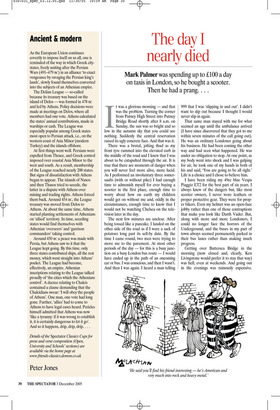Ancient & modern
As the European Union continues covertly to impose itself on us all, one is reminded of the way in which Greek citystates, freely uniting after the Persian Wars (491–479 BC) in an alliance ‘to exact vengeance by ravaging the Persian king’s lands’, slowly found themselves converted into the subjects of an Athenian empire.
The Delian League — so-called because its treasury was based on the island of Delos — was formed in 478 BC and led by Athens. Policy decisions were made at meetings on Delos, where all members had one vote. Athens calculated the states’ annual contributions, made in warships or cash. The League was especially popular among Greek states most open to Persian attack, i.e., on the western coast of Asia Minor (modern Turkey) and the islands offshore.
At first things went well. Persians were expelled from Thrace, and Greek control imposed over coastal Asia Minor to the west and south. As a result, membership of the League reached nearly 200 states. But signs of dissatisfaction with Athens began to appear. The islands of Naxos and then Thasos tried to secede, the latter in a dispute with Athens over mining and trading rights. Athens forced them back. Around 454 BC, the League treasury was moved from Delos to Athens. At about the same time, Athens started planting settlements of Athenians on ‘allied’ territory. In time, seceding states would find themselves with Athenian ‘overseers’ and ‘garrison commanders’ taking control.
Around 450 BC a peace was made with Persia, but Athens saw to it that the League kept going. By this time, only three states contributed ships, all the rest money, which went straight into Athens’ pocket. The League had become, effectively, an empire. Athenian inscriptions relating to the League talked proudly of ‘the cities which the Athenians control’. A decree relating to Chalcis contained a clause demanding that the Chalcidians swear: ‘I will obey the people of Athens’. One man, one vote had long gone. Further, ‘allies’ had to come to Athens to have legal cases heard. Pericles himself admitted that Athens was now ‘like a tyranny: if it was wrong to establish it, it is certainly dangerous to let it go’. And so it happens, drip, drip, drip....
Details of the Spectator Classics Cups for prose and verse composition (Open, University and Schools’ sections) are available via the home page at www.friends-classics.demon.co.uk
Peter Jones



























































 Previous page
Previous page